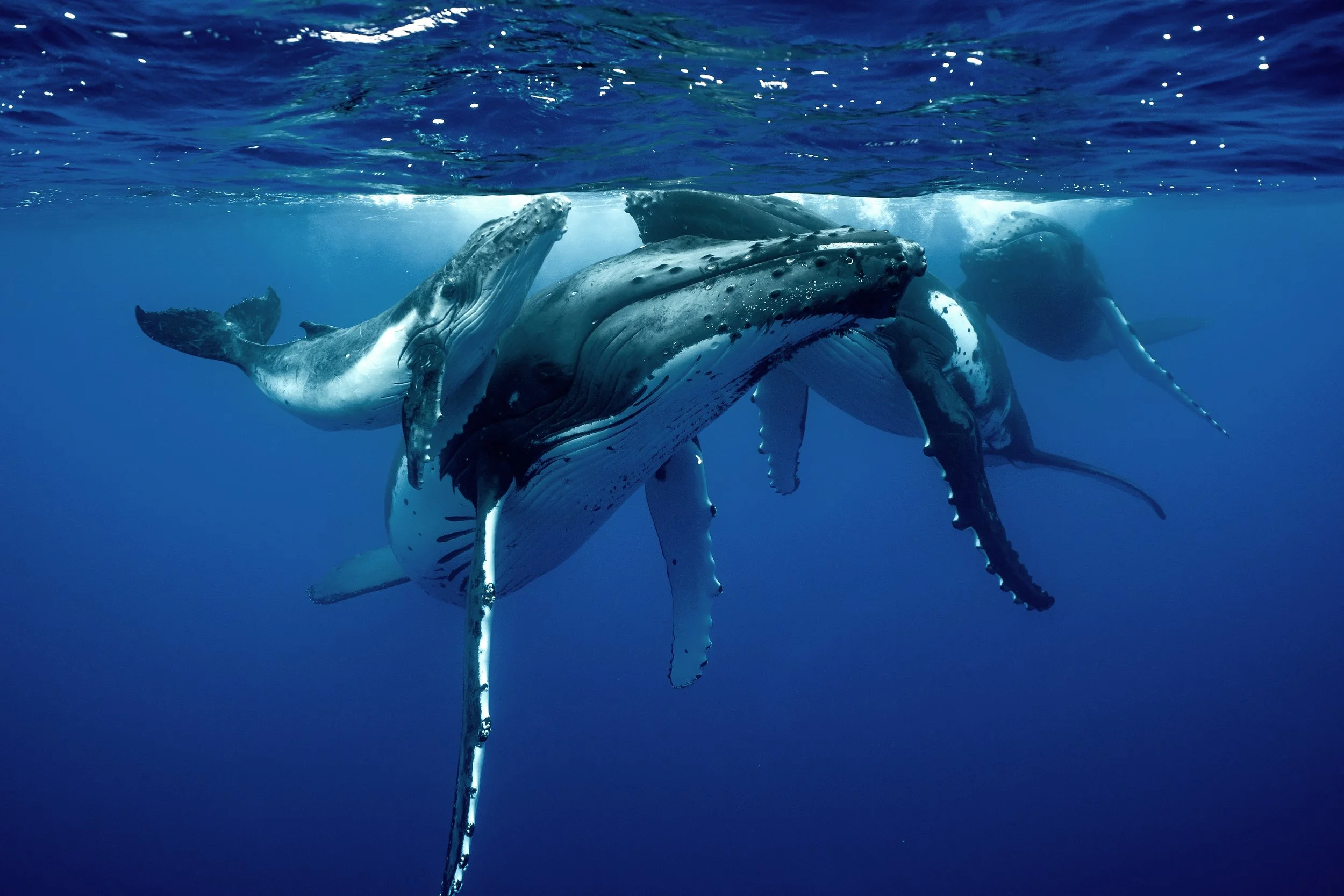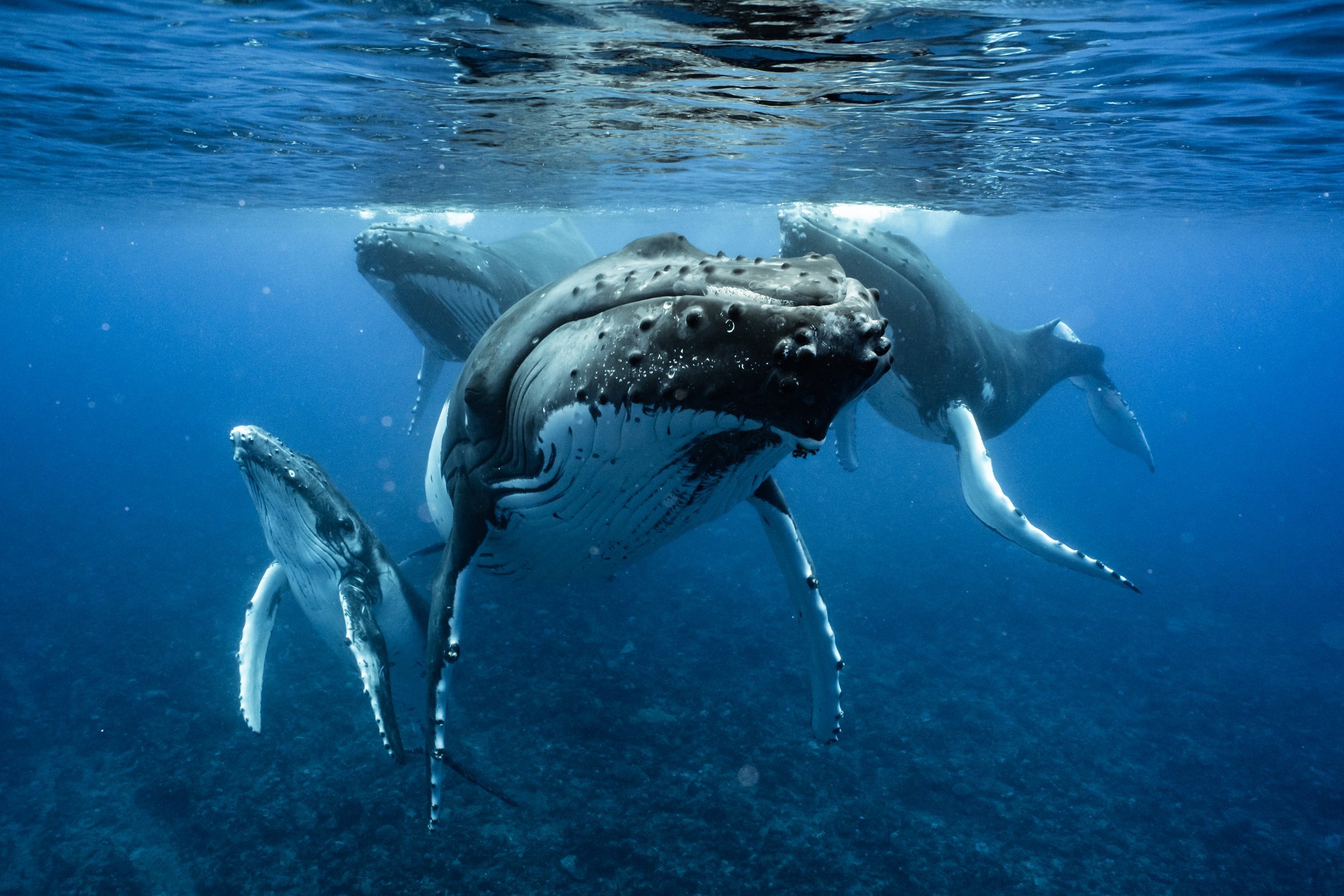French Polynesia Tightens Whale Swimming Rules for 2025: What You Need to Know
A freediver observes two playful adults off the east coast of Rurutu. Matt Reichel.
French Polynesia has long been a premier destination for marine enthusiasts, especially during whale season. Visitors flock to its turquoise waters to swim with and observe whales in their natural habitat. New regulations, introduced in April 2024 and set to take effect in 2025, aim to balance the region’s thriving whale tourism industry with a commitment to protecting these majestic creatures.
While some may view the new rules as restrictive, they reflect a global shift toward sustainable tourism practices. Here’s an overview of the changes, their benefits for marine wildlife, and how they stack up against regulations in other renowned whale-watching destinations like Tonga and Dominica.
Key Changes to Whale-Watching Regulations in French Polynesia
The updated regulations prioritize the safety and well-being of both whales and human participants. Here are the most significant updates:
Sanctuary Designation
French Polynesia’s waters are now a designated sanctuary for whales and other marine mammals. This status enforces stricter controls on proximity, interaction, and vessel behavior, reinforcing protections for these species.
Vessel Behavior Restrictions
Prohibition of Behavioral Modification: Boats must avoid actions that influence whale behavior, such as speeding up or altering direction to chase whales.
Exclusion and Observation Zones: A 300-meter observation zone and a 100-meter exclusion zone around whales are now mandatory. Entry into these zones requires specific authorization.
In-Water Interaction Limits: Only seven people, including guides, may be in the water near whales. Participants must remain outside the exclusion zone and avoid obstructing whale movement.
Time and Capacity Limits
Whale-watching is restricted to between 7:30 AM and 5:30 PM.
Only one boat per group of operators is allowed in an area at a time, addressing overcrowding in popular spots like Moorea and Tahiti.
Approach and Movement Guidelines
Boats must avoid approaching whales from the front or rear and instead follow a parallel course to minimize disturbance.
The use of sonar or non-standard navigation frequencies that might disrupt whales is prohibited.
Permit and Licensing Updates
Operators must now obtain permits reviewed every five years, detailing vessel specifications, crew qualifications, and activity plans.
In-water experiences, such as snorkeling with whales, require additional certifications to enhance safety and animal welfare.
Why These Changes Matter for Whale Conservation
The updated regulations are designed to reduce stress on whales, especially during calving season, when they are most vulnerable. Limiting proximity and managing vessel behavior ensures whales can migrate, feed, and care for their young without unnecessary interference.
The creation of exclusion zones reduces the likelihood of boats crowding around individual whales, a problem that has plagued popular whale-watching spots. By spreading out interactions, operators can also offer tourists a more exclusive and serene experience.
Comparing French Polynesia’s Regulations to Tonga and Dominica
French Polynesia’s new rules align with global efforts to protect marine mammals, drawing on lessons from destinations like Tonga and Dominica:
Tonga: Tonga allows only four swimmers and one guide in the water at a time, maintaining calm and controlled interactions. French Polynesia permits slightly larger groups (six swimmers and one guide), offering more flexibility while still emphasizing whale welfare.
Dominica: Dominica enforces a strict three-swimmer limit with one guide, along with expensive permits and tightly controlled boat proximity rules. These measures mirror French Polynesia’s emphasis on safeguarding marine mammals while promoting responsible tourism.
By adopting similar frameworks, French Polynesia strengthens its reputation as a leader in sustainable marine tourism.
Opportunities and Challenges for Operators
Benefits
Sustainability: Reducing disturbances to whale populations ensures the long-term health of the marine ecosystem, benefiting both wildlife and tourism-dependent businesses.
Enhanced Guest Experience: Smaller groups and less crowded waters lead to more intimate, memorable encounters for tourists, enhancing the region’s appeal as a premier destination.
Challenges
Operational Adjustments: Limits on group sizes and boat numbers may increase costs for operators accustomed to larger tours. Rotating swimmers in smaller groups, as done in Tonga, could help offset this issue.
Enforcement Concerns: Consistent enforcement across remote islands like Rurutu and Tubuai could be challenging. Uniform application of the rules is essential to maintain fairness and industry confidence.
The Path Forward: Responsible Tourism for a Sustainable Future
French Polynesia’s new regulations represent a significant step forward in balancing marine tourism with wildlife conservation. While operators may face initial challenges in adapting, the long-term benefits for whales, ecosystems, and the industry as a whole are undeniable.
By adhering to these rules and exploring innovative ways to enhance guest experiences, operators can continue to thrive while respecting the natural environment. With collaboration and commitment to best practices, French Polynesia will remain a top destination for ethical and unforgettable whale encounters.











